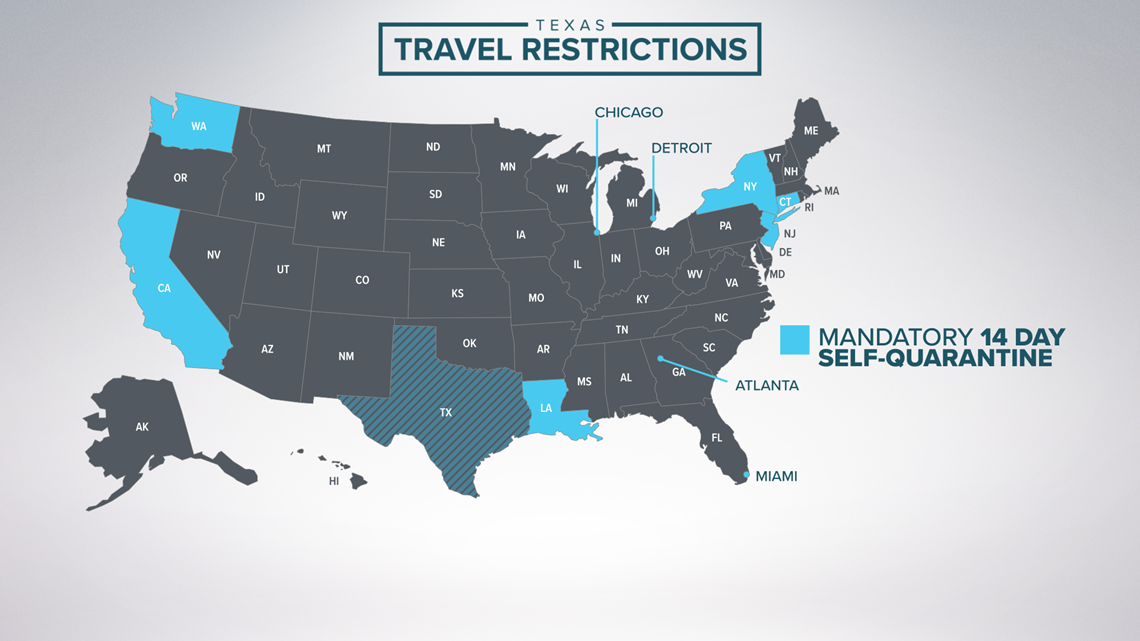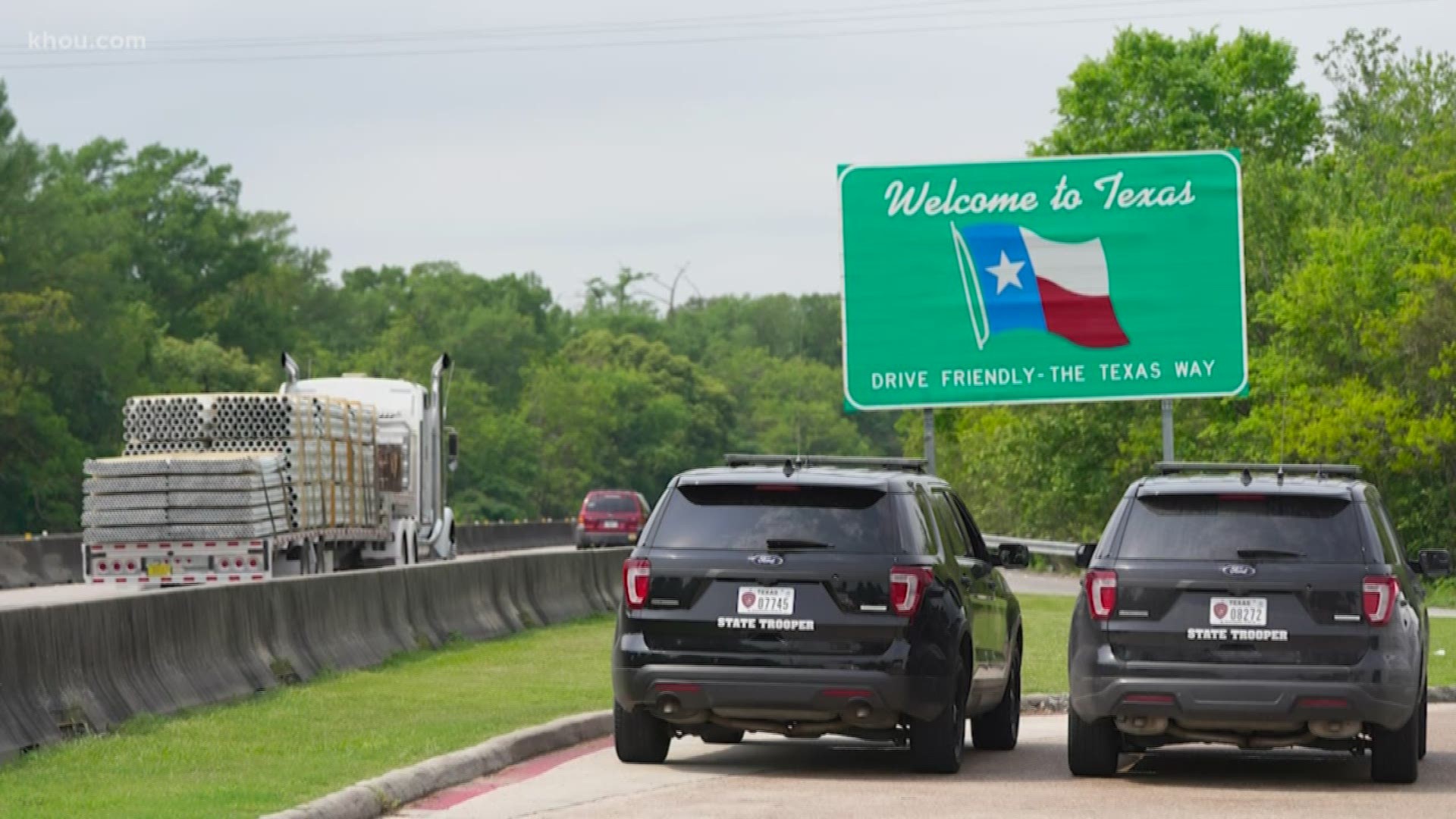HOUSTON — Nearly 3,000 Texans have now tested positive for COVID-19.
Gov. Greg Abbott says slowing the spread now means restricting all travelers driving or flying from Louisiana.
The new travel order went into effect Monday at noon.
It requires drivers entering Texas to fill out a form designating a location where they’ll quarantine for 14 days.
Travel related to commercial activity, military service, emergency response, health response, or critical infrastructure functions are exempt.
Companies whose employees travel for work will need to fill out a form online. If approved, employees will be provided a letter to show to law enforcement at the Texas/Louisiana border.
Abbott said DPS Troopers will be enforcing the new restrictions.
A spokesperson for the Department of Public Safety said there will not be checkpoints stopping all drivers entering the state.


DPS released a statement Monday saying, “While the department will not discuss specifics related to its operational plans regarding enforcement, we can tell you that at this time, DPS will not be establishing checkpoints along the Texas/Louisiana border. However, the department will be increasing our patrols in these areas. Again, it is important for those who fall under the self-quarantine mandates to remember that a violation of the Governor’s Executive Orders is subject to criminal penalties.”
According to the order, those who do not comply with the mandatory self-quarantine could face up to 180 days in jail and a $1,000 fine.
RELATED: Here's what anyone living or working in Louisiana needs to know before traveling back to Texas
Coronavirus symptoms
The symptoms of coronavirus can be similar to the flu or a bad cold. Symptoms include a fever, cough and shortness of breath, according to the Centers for Disease Control. Some patients also have nausea, body aches, headaches and stomach issues. Losing your sense of taste and/or smell can also be an early warning sign.
Most healthy people will have mild symptoms. A study of more than 72,000 patients by the Centers for Disease Control in China showed 80 percent of the cases there were mild.
But infections can cause pneumonia, severe acute respiratory syndrome, kidney failure and even death, according to the World Health Organization. Older people with underlying health conditions are most at risk for becoming seriously ill. However, U.S. experts are seeing a significant number of younger people being hospitalized, including some in ICU.
The CDC believes symptoms may appear anywhere from two to 14 days after being exposed.
Human coronaviruses are usually spread through...
- The air by coughing or sneezing
- Close personal contact, such as touching or shaking hands
- Touching an object or surface with the virus on it, then touching your mouth, nose or eyes before washing your hands.
Help stop the spread of coronavirus
- Stay home when you are sick.
- Eat and sleep separately from your family members
- Use different utensils and dishes
- Cover your cough or sneeze with your arm, not your hand.
- If you use a tissue, throw it in the trash.
- Follow social distancing
Lower your risk
- Wash your hands often with soap and water for at least 20 seconds. If soap and water are not available, use an alcohol-based hand sanitizer.
- Avoid touching your eyes, nose, and mouth with unwashed hands.
- Avoid close contact with people who are sick.
- Clean and disinfect frequently touched objects and surfaces.
- If you are 60 or over and have an underlying health condition such as cardiovascular disease, diabetes or respiratory illnesses like asthma or COPD, the World Health Organization advises you to try to avoid crowds or places where you might interact with people who are sick.
Get complete coverage of the coronavirus by texting 'FACTS' to 713-526-1111.

